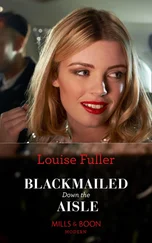The hut loomed above them, a dark shape visible through the trees at the top of the steep path, about to disappear into dusk. She paused for a moment, turned to the valley. He thought, she feels it too, the singing stillness, alive with so much that is invisible
After a while, she said, ‘The villages are like this too. A short drive, and suddenly. .’ She was feeling the isolation of the place — and yet, for him, bringing her here had made it much less isolated. That was all you needed, one person, newer than you, to make a strange thing feel owned.
They looked at each other in a moment of truce. He gestured up the path.
As she walked ahead of him, he watched the slow side-to-side movement of her hips and wanted, very badly, to put his hands on them. He wanted no more talk.
On the veranda, he stood for a moment, looking around for any sign of Kadek, but he rarely came late afternoon or evening unless by prior arrangement. There would be a basic meal left on the desk, under a banana leaf.
The ornate doors were kept padlocked — not that that would make much difference to a determined intruder, or intruders. He took the small silver key from his trouser pocket, unlocked the padlock and placed it on the veranda table, pushed back both of the narrow doors and gestured for her to go in. She stepped over the threshold.
They were silent while she wandered around the hut, casting her gaze slowly over each object and item of furniture, looking round and seeing how it all added up to a kind of comfortable barrenness. He remembered what Francisca had said the first time she came to his bachelor flat in Amsterdam, many years ago. ‘You know, you should have tidied up, don’t you know what a woman thinks when they see a man’s habitat, is this the kind of life I would lead with this man? ’ What was Rita gleaning about him from the few objects in the room?
‘It’s only a forest toilet outside I’m afraid, and a bak mandi , although I usually just wash with a bowl on the veranda in the mornings, to watch the sunrise. Kadek brings water from up the hill, there are streams that feed into the river.’
She looked at the ceiling. ‘No fan?’
He indicated a rusty desk fan that sat in the corner. ‘Only that, but the electricity is pretty poor. I have a couple of kerosene lamps if I need them.’
‘I love the smell of those.’
Stay with me, he thought. Stay here tonight. We can share the food that Kadek has left. We can sit cross-legged on the bed, facing each other, and I will feed you rice balled up between my fingers.
‘You know I can’t stay the night,’ she said, as she turned.
He thought of the possibility that he would be visited during the hours of darkness by a killing squad. This was ridiculous, this fantasy of his, that she was looking round the hut and imagining a life with him. They hardly knew each other. She knew nothing, nothing about the world and certainly nothing about him. A million babies. Who the fuck did she think she was? ‘I wasn’t going to invite you.’
‘Okay, there’s no need to be rude about it.’
And suddenly, it was as if they were having a full-blown marital row, facing each other full on, speaking too loudly and too quickly; as if they had, all at once, reached the stage that couples who have known each other for many years eventually reach, where the arguments are always the same argument and the victor merely the one who is most vehement on that particular occasion.
‘I don’t know what’s wrong with you today and I don’t know where your cynicism comes from,’ she said, ‘but most of the people who live in this country are lucky if they eat each day, and maybe we should. .’
At that point, without any conscious decision to escalate things between them, Harper shot out his hand and grasped her upper arm and spat, ‘ How can you be afraid of some dog in the street, some starved dog you could kick aside, one foot, in your strappy sandals, and he would slink off? Some mangy little monkey, who would run away backwards just if you. . if you. . lifted your hand? Do dogs and monkeys have knives or guns? You think your Ni Wayan is so charming or your driver so kind because he takes you to the water temple? How can people like you be so stupid? Now? At this time? Don’t you know what’s going on in Jakarta and the other cities? People have been burnt to death in shopping malls, beaten to death in the streets. You live in this country. Don’t you even follow the news ?’
This speech poured out of him and all the while he continued to grasp her upper arm, just to ensure her attention he thought, but then he realised that instead of wrenching herself away and spitting back — something like of course I do — she had let the arm go limp in his grasp and cast her gaze to the ground. Francisca would have been yelling at him by now, jabbing her finger in his chest — for all her mild manners, she was snarly and argumentative enough when she chose. Rita was behaving quite differently. He saw the neutral look on her face and realised it was the look of a woman who had extensive experience of a man with a temper, a woman who knew how to become perfectly still.
The scar on her belly, the absence of any mention of her past or a child dead or alive and her reaction to him now conjoined to form an image of her particular tragedy. It came to him in one piece: a man who hit her, a child taken away or left behind, the price she had to pay for her own freedom and sanity, perhaps — and he thought, oh no , and let her arm drop, expecting her to turn away or rub the arm but instead she stood motionless before him, still staring at the ground, as if she was waiting to see whether there was any more where that came from. He had done much worse than this, as well as witnessing worse and doing nothing — but watching this large, soft woman standing carefully in front of him, he could not have felt more ashamed.
He took a step back, to indicate that he was not going to touch her again. Please look at me, he thought. If you look, you will see it in my face. I am not like him. I think men who hit women are scum, beneath contempt.
She would not look at him and he did not want to speak until she raised her gaze. When she did, she did not look him in the face. Instead, she stared into the corner of the room behind him, then said very quietly, ‘John, what happened to you?’
II Now It Is Clear Who Is Friend and Who Is Foe (1942–65)
He had no memory of leaving the East Indies, going back to what his mother called the Homeland, back to Holland. It was 1946. He was three and a half years old and had only known life in a camp of one sort or another; the internment camp run by the Japanese on Sulawesi and then three displaced civilian camps run by the British and Dutch in the suburbs of Batavia.
His mother told him about it though, the journey, the perilous weeks at sea. They shared a narrow, windowless cabin with another woman and her two daughters — the daughters slept on a mat on the floor between the bunks; the youngest girl had whooping cough and gasped for breath all night. Harper slept on his mother’s bunk. She pushed him against the wall and lay on the outside, to keep him away from the whooping girl. Like all the children, he had had his head shaved before embarkation to stop the lice and scabies spreading and at night, his scalp scratched his mother’s arm. ‘You’re prickling my arm,’ she would whisper to him in the dark, and they would both giggle together, then lie awake listening to the whooping child. ‘Still, at least you don’t have diseases,’ she would say, after a while, stroking his stubble.
He remembered none of this himself, but later, when they had moved to Los Angeles and he had acquired an American stepfather and a baby half-brother, his mother would take him on one side and talk about their life together in the camp and the long journey back to Holland. She liked to do this when she had had a fight with his stepfather because it was something only she and Harper shared. ‘Weeks and weeks on end,’ she would say, ‘just you and me, baby boy, on a boat crammed full of people who were running out on their lives so far. You slept in my arms every night, you and your prickly head.’ At this, she would throw a glance at her new husband, or at the doorway through which he had recently departed, as if to say, this important thing happened before you, it excludes you, and don’t you forget it.
Читать дальше












